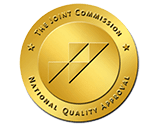Many people wonder if they are addicted to drugs and alcohol as a result of their “addictive personality.” To answer that, we need to first gain an understanding of what an addictive personality is.
What is an Addictive Personality?
A person with an addictive personality is more likely to get addicted to anything than someone who does not have such a personality. An obsession or fixation with something may emerge due to someone being too excited about anything. Anxiety, sadness, and poor impulse control are all present but not easily evident underlying reasons for getting carried away and overindulging in video games, food, sex, or drugs.
Some of these behaviors might be efforts to heal previously unfulfilled or buried sentiments. At first glance, a video game or food addiction may seem benign, especially compared to substance use problems. Addiction to a video game or a meal, on the other hand, might have catastrophic effects. The difficulty is that the object of addiction can change throughout time. In other words, someone may get addicted to video games before going to other goods — or substances — of addiction.
Because the object of addiction could change, a popular question most people ask is if the object of addiction can be a person. Well, can you be addicted to a person? It is possible to get addicted to someone. Relationship addiction, love addiction, and codependency are used to describe this condition. Each of these consists of searching for external validation or a dopamine rush.
Signs of an Addictive Personality
Now that you know what an addictive personality is, you might be curious about “do I have an addictive personality?” on your mind. Well, that’s what knowing the signs of an addictive personality does for you.
Several characteristics can be used to identify people who have an addictive personality. Addictive personalities can be indicated by mental illnesses such as depression and anxiety, but this is not always true. There are a few more reliable indicators of addictive personalities, such as:
- Binge eating/comfort eating
- Using alcohol to unwind or socialize
- Excessive use of one’s phone or social media
- Sexual partners are being substituted for a phony sense of intimacy.
- Excessive shopping/impulse buying
- Gambling
- Obsessing
- Excessive risk-taking
- Drug use for coping
- Never feeling satisfied/needing more of a particular feeling
- An inability to stop using harmful chemicals
- An inability to curtail other harmful activities
Healthy boundaries and a lower level of attachment are indicated by the ability to stop and control one’s actions. If you or someone you know hides their harmful behavior, that could signal a problem needing intervention.
Addictive Personality Traits and Their Influence on Addiction
For decades, addicts’ personalities have been used as a scapegoat for the disease of addiction. Individuals who have the following qualities were formerly regarded to have addictive personality traits:
- Manipulation or deception
- avoiding personal accountability
- Are you narcissistic or self-centered?
- Looking for a thrill
- Impulsive
- Neuroticism
- Socially alone or disconnected from others
- Mood swings or extreme emotions
While these personality traits are often seen in people who have a drug issue, newer research reveals that they are not to blame for the illness’s development. Anxiety and other underlying mental health concerns, such as depression, are more common. Substance abuse would therefore be seen as an attempt to ease the unpleasant symptoms of mental illness rather than as a way of achieving a selfish goal.

What Makes the “Addictive Personality Theory” Popular?
There are many reasons why the addictive personality hypothesis has survived the test of time. For one thing, it explains an extremely complicated and difficult-to-understand disease. As a result, blaming addiction on predetermined personality features relieves many individuals seeking solutions to drug misuse issues.
Another reason for the popularity of blaming an addictive personality for drug or alcohol consumption is that it removes guilt from the drug user. Addictive personality qualities are common in people who have substance abuse problems, although they aren’t always the root of the problem. However, if you’ve been told that you’re doomed to get addicted because you have particular features, that may be enough of a reason not to attempt to prevent certain habits.
Finally, no one-size-fits-all model exists for forecasting addiction. Rather, drug use disorders arise due to a variety of reasons that are as unique as the person who is addicted.
Actual Addiction Risk Factors of Addiction
In brief, long-term drug usage affects the brain’s chemical makeup, enabling addiction to develop. But what motivates someone to begin abusing drugs or alcohol? This question, unfortunately, does not have a clear solution. There are, however, certain risk factors:
Genetics
There is a genetic component to who develops an addiction. According to the National Institutes of Health, genetics may account for up to half of your risk of getting a drug use problem. However it’s crucial to note that genetics do not ensure addiction; rather, they imply a greater risk of engaging in addictive behaviors.
Environment
A person’s surroundings influence addiction. Family dynamics, such as parental drug use, missing parents, or peer and societal pressure, may increase drug misuse.
Trauma
Trauma may occur at any time in one’s life and bring a slew of problems. The stress level associated with experiencing and occasionally repeating trauma frequently leads to a person self-medicating with narcotics to alleviate the suffering.
Poor Stress Management
Overwhelming stress, the impression of unfulfilled needs, and a lack of appropriate coping mechanisms are all risk factors for addiction development.
Mental Illness
There is a substantial link between co-occurring mental health and drug use problems. This is assumed to be the case for various reasons, including common risk factors (such as trauma leading to mental illness and substance usage) and self-medication. Furthermore, prolonged drug usage may lead to mental health problems such as sadness and anxiety.
Ultimately, losing control over the use of narcotics may lead to addiction for various reasons. However, there are no specific personality features that would ensure this result.
Addiction Support in Huntington Beach, CA
If you’re interested in outpatient addiction treatment and support in Huntington Beach, CA, contact Silver Lining Recovery at 866-681-0927.







